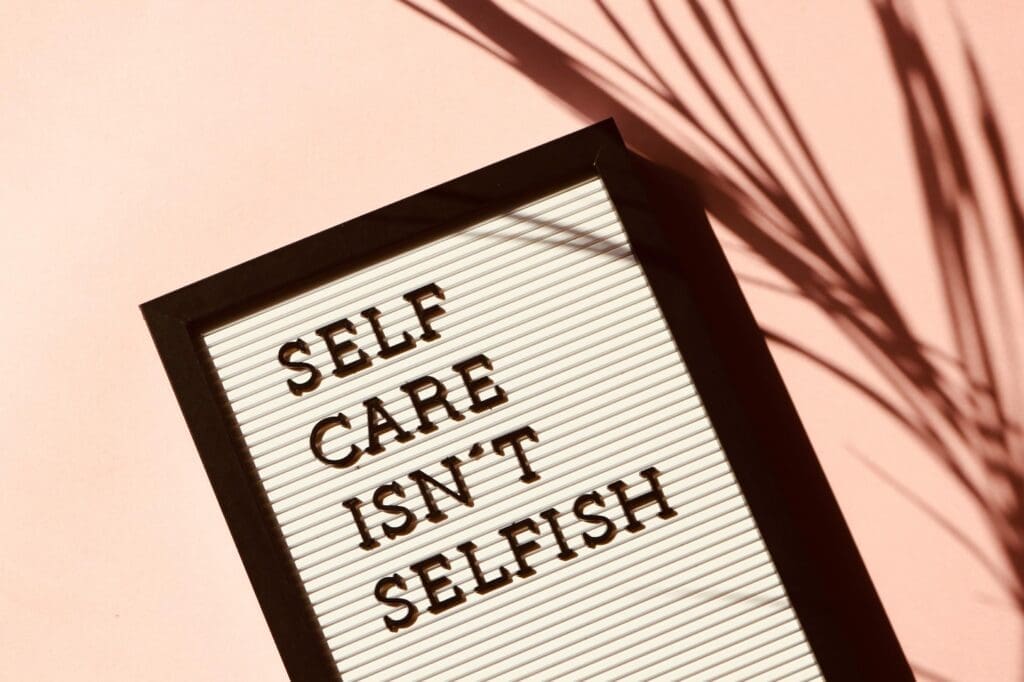The Secret To Intuitive Eating During The Holidays
By: Alyssa Bombacino & Joelle Rabow Maletis
The holidays are generally regarded as a time of joy and happiness, but for those struggling with an eating disorder it’s quite the opposite. “National surveys estimate that 20 million women and 10 million men in America will have an eating disorder at some point in their lives.” (National Eating Disorders Association, 2021). When suffering from an eating disorder, it is difficult to maintain a healthy relationship with food, body image, body weight, and exercise. It is common for individuals to experience recurring thoughts about food, body weight, shape, and food intake.
The National Eating Disorders Association describes, “Eating disorders are not a choice. They are complex medical and psychiatric illnesses that patients don’t choose. They are bio-psycho-social diseases, which means that genetic, biological, environmental, and social elements all play a role (National Eating Disorders Association, 2021).” This time of year tends to be triggering and emotionally painful for these individuals because of the intense focus on food. Since family gatherings often involve the abundance of sweets, sugary foods, and alcohol, they tend to be overwhelming and anxiety-provoking. Individuals with eating disorders may also experience worry about what their loved ones will say about their appearance and what they eat. Not to mention the intense pressures that we all will receive about dieting and weight loss from social media during this time of year.
Additionally, holidays often disrupt everyday routines. Since holidays tend to involve parties, group dinners, and other festive events, it can be difficult to maintain a regularly scheduled meal time. This change in routine may cause further distress to those struggling with disordered eating, leading them to feel out of control.
While people suffering/recovering from anorexia, bulimia, or binge eating disorder may experience discomfort during the holidays, with the right support, tools, and self care, it is possible to survive them. Keep reading to learn how you can manage the holidays using intuitive eating practices.
What Is Intuitive Eating?
It is a non-restrictive practice of eating foods that make us feel good mentally and physically. “Intuitive eating is a dynamic mind-body integration of instinct, emotion and rational thought. It is a personal process of honoring your health by paying attention to the messages of your body and meeting your physical and emotional needs. It is an inner journey of discovery that puts you front and center; you are the expert of your own body.”(Tribole & Resch, 2017).
Intuitive Eating Practices For The Holidays
With intuitive eating, you can indulge in all of your favorite holiday foods without going overboard or feeling out of control. We provide our top 6 suggestions for intuitive eating during the holiday season below!
- Allow Yourself All Foods
Flexibility when it comes to food means seeing all foods as neutral (not good or bad). Recognize the foods that you consider “off limits” because they are not “healthy” and try to rethink your opinion of them. It can be helpful to remember that all foods offer nutritional benefits for the body. For example, a calorie from an apple is the same as a calorie from a candy bar. When we consider certain foods “bad” or “off limits” we are then more likely to experience stress and anxiety in everyday eating. Having a strict list can also lead to a cycle of shame and blame after one has broken a “rule”. Choose foods that make you feel good.
- Practice Mindful Eating
Practicing mindful eating involves paying attention to our food without judgment, moment by moment. Mindful eating is a great way for you to connect with your body and notice your internal feelings of hunger and fullness. When eating your meal, take a few moments to notice the way the food tastes, and how your body is feeling. It may also be helpful to try eating slowly, drinking water periodically, and sitting at an actual table. Pay attention to your body’s sensations of fullness and check on your hunger levels throughout the meal. By eating mindfully you can improve digestion, feel full with less food, and break unhealthy eating habits.
- Set Boundaries
You may find it helpful to set boundaries if you tend to feel judged and pressured when eating with your family. It is helpful to establish a clear boundary with family members when they comment on your appearance or weight. You might say, “I’m healthy and happy and would appreciate it if you didn’t comment on my appearance.” You might also tell your family that you won’t eat dessert or finish your plate if you are full. For example, “I ate until I was satisfied. I don’t need to finish all my food right now, and can save some for later”. Making a clear line between what others want and what we want can help ease the intense pressure related to eating and the holidays. Prioritizing our own wellbeing is more important than pleasing others.
- Give Yourself Grace
Be kind to yourself and eliminate negative self-talk. Try focusing on what you appreciate about yourself and others. Give yourself some grace when triggers arise during holiday meals, remind yourself that it is a difficult time and that you are doing your best. Take time to be grateful for the food that will nourish your mind, body, and soul, as well as the memories you will make during this holiday season. Try not to lose sight of the reason we celebrate the holidays, which is to connect with our loved ones.
- Practice Self Care
Remember to take care of yourself during this stressful time of year. Think about the activities you enjoy doing and be intentional about making more time for these during the holidays. Consider reading, moving your body, meditating, snuggling with pets, listing the things you are grateful for, and writing down positive affirmations. Exercising and eating foods with nutritional value are also great forms of self care, but they should be viewed as ways to take care of the mind and body rather than punishments. By incorporating just a few of these activities daily, you can moderate the effects of unpleasant reminders or stressors, and navigate personal growth.
- Follow Body Positive Social Media Accounts
Focus on consuming positive media. Consider following accounts that celebrate all sizes, shapes, genders, and skin colors, and unfollow those that do not. Instead of following accounts that promote diet culture or unhealthy methods of losing weight at this time of year, look for those that promote healthy eating and moderate exercise. The National Association of Anorexia Nervosa and Associated Disorders (2022) describes, “Larger body size is both a risk factor for developing an eating disorder and a common outcome for people who struggle with bulimia and binge eating disorder”. Being exposed to more body positive accounts that are uplifting and accepting is a great way to boost your mood and feelings of self-acceptance during the holidays. Over time, you may also discover new ways of thinking about your body.
Be gentle with yourself while you are navigating through what may be an emotional or challenging time for you. Putting yourself first and facing your fears takes tremendous strength and courage.
Please note: If you or a loved one is experiencing suicidal thoughts, ideations or desires, please call 988, 911, or go to your nearest emergency room.
Resources:
Free Online ED and Body Image Support Groups
https://edrcsv.org/get-help/support-groups/free-online-ed-and-body-image-support-groups/
National Association of Anorexia Nervosa and Associated Disorders: A free eating disorder helpline available to provide emotional support and referrals. Their hours are Monday through Friday 9am to 9pm CST.
- Call: 888-375-7767
- Visit: https://anad.org/
National Suicide Prevention Lifeline: It is open 24 hours a day, 7 days a week, and is staffed by professionals.
-Call: 9-8-8
-Visit https://988lifeline.org/
At JRM&A we lead with compassionate, trauma-informed therapeutic models that are personalized and solution focused to help support our clients needs and attain their personal goals.
You can reach us at (650)-386-6753 or info@joellerabowmaletis to share your comments, ask questions or schedule an appointment.
National Eating Disorders Association (2021, July 14). Statistics & Research on Eating Disorders. National Eating Disorders Association. Retrieved November 28, 2022, from https://www.nationaleatingdisorders.org/statistics-research-eating-disorders
National Association of Anorexia Nervosa and Associatied Disorders. (2022, June 8). Eating disorder statistics: General & Diversity stats: Anad. National Association of Anorexia Nervosa and Associated Disorders. Retrieved November 28, 2022, from https://anad.org/eating-disorders-statistics/
Eating Disorders Resource Center (2022, November 10). Eating Disorders Resource Center Home Page. Eating Disorders Resource Center. Retrieved November 28, 2022, from https://edrcsv.org/
Tribole, E., & Resch, E. (2019). The intuitive eating workbook: Principles for nourishing a healthy relationship with food. Amazon. Retrieved November 28, 2022, from https://www.amazon.com/Intuitive-Eating-Workbook-Principles-Relationship/dp/1626256225




